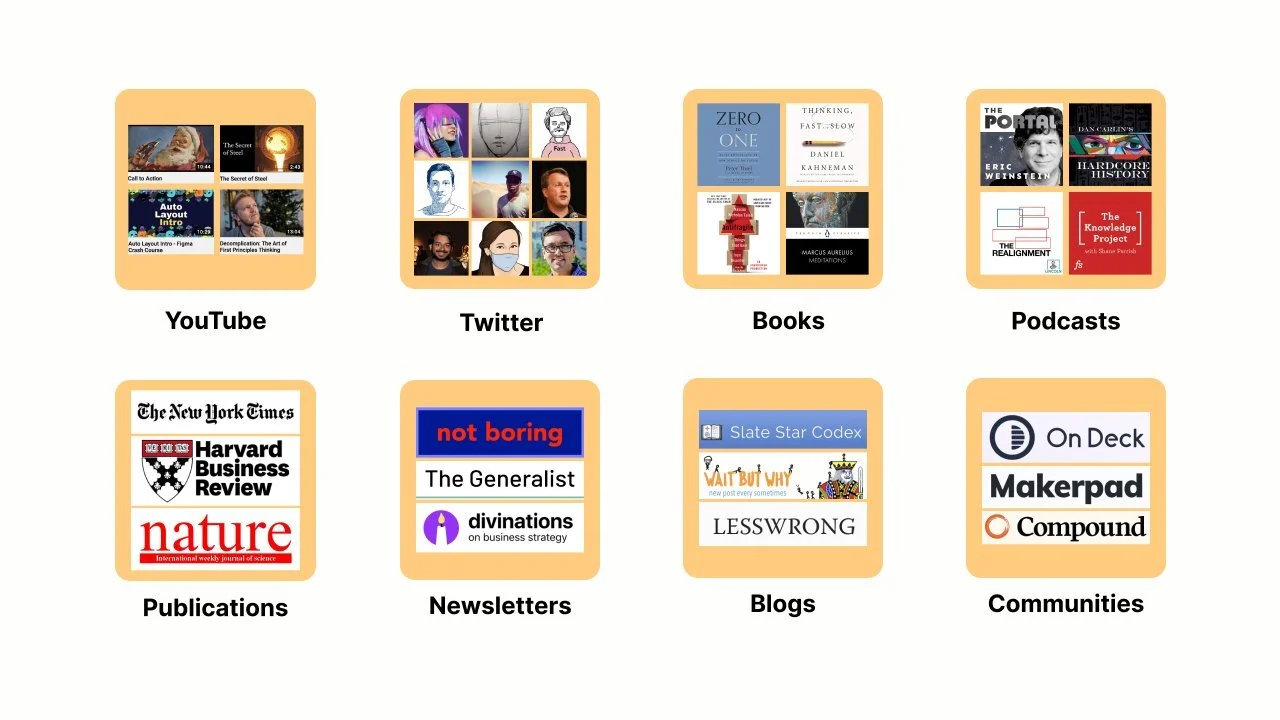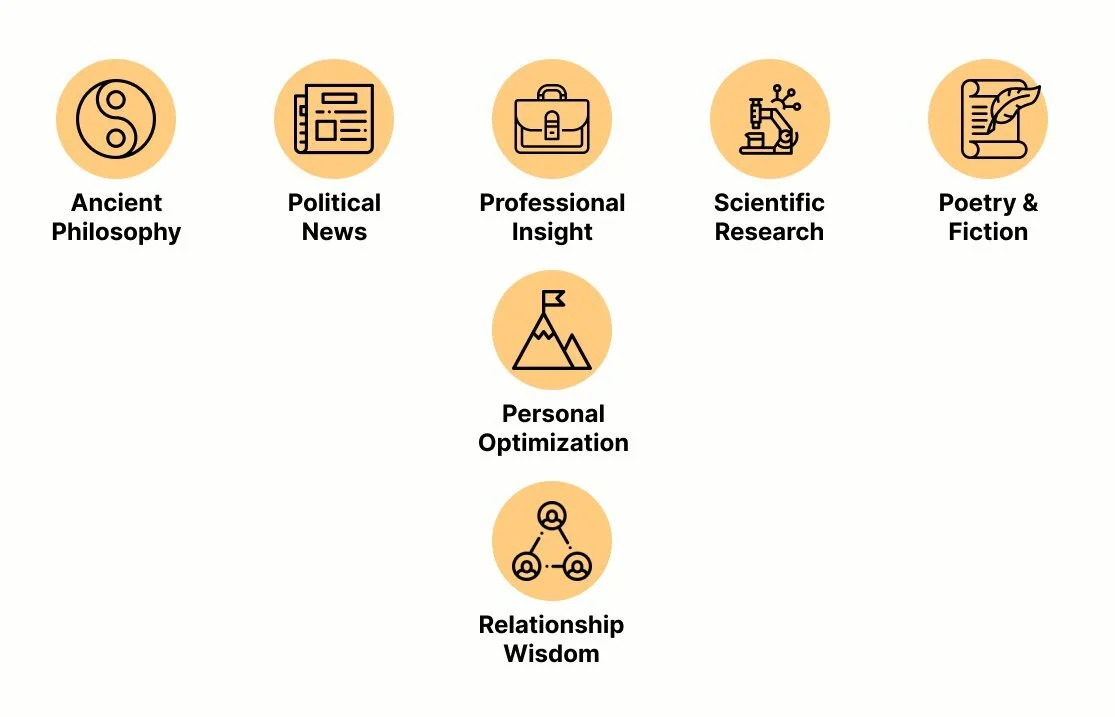Problem: Most people do not track what they consume. However, it is extremely important to be conscious of ones information diet. Especially since the quality of ones information diet will shape the way they think about and act in the world.
Subscribe here to get access to the first 500 ideas from our blog. For just one coffee a month, you can have access to more than $500 billion dollars of ideas. What's not to love?
This business would bring to people’s consciousness what they know (and how they know what they know) to fight the concept of WYSIATI that Daniel Kahneman introduces in his book “Thinking, Fast and Slow.” As Wikipedia describes,
To explain overconfidence, Kahneman introduces the concept he terms What You See Is All There Is (WYSIATI). This theory states that when the mind makes decisions, it deals primarily with Known Knowns, phenomena it has observed already. It rarely considers Known Unknowns, phenomena that it knows to be relevant but about which it does not have information. Finally it appears oblivious to the possibility of Unknown Unknowns, unknown phenomena of unknown relevance.
He explains that humans fail to take into account complexity and that their understanding of the world consists of a small and necessarily un-representative set of observations. Furthermore, the mind generally does not account for the role of chance and therefore falsely assumes that a future event will be similar to a past event.
Solution: Given that most people have no idea how to curate a meaningful information diet, this business would help people to subscribe to ways of thinking. For instance, if you as an individual want to think more like a marine biologist, the site would allow you to subscribe to the types of publications, newsletters, blogs, communities, and more that marine biologists read on a daily, weekly, and monthly basis. It would tap into the wisdom of the crowd (similar to businesses like GoodReads) in order to curate a list from real experts about what they use to hone their craft.
What you consume matters. This business would help you consume better.
Nick deWilde recently tweeted about the importance of information diet curation in January 2021. His argument is that everyone should have T-shaped depth. As he goes on to explain,
The T-shaped talent model suggests that the best way to grow your abilities is to build a shallow understanding across a breadth of domains and a depth of expertise in whichever domain is most relevant to your profession.
This same lens helps identify which topics to prioritize within your information diet.
To build the vertical bar of your T, you’ll want to subscribe to information streams that help you perform the important roles and responsibilities you’ve signed up for in your personal and professional life.
This concept of developing T-shaped individuals is not new: however, there has never been a clear platform to turn to when a person wants to optimize their information consumption. This business would solve that use-case by becoming a categorical leader in the field of information diets.
Currently, according to Absolute Market Insights, the global content curation market was estimated to be US $524 million in 2018 and is expected to reach US $2.4 billion by 2027 growing at a CAGR of 17.5% over the forecast period. I anticipate that as more information is created in the world, organizing and categorizing it in ways that are digestible will be a necessity.
Monetization: Subscription revenues and fees (perhaps to be shared with contributors of information diets) per individual.
Contributed by: Michael Bervell (Billion Dollar Startup Ideas)


